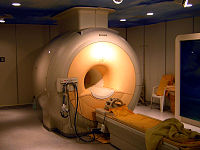
Discrete element study of bubble behaviors in Type D particle fluidization with and without interparticle cohesive forces
Sign Up to like & getrecommendations! Published in 2018 at "Granular Matter"
DOI: 10.1007/s10035-018-0836-8
Abstract: The discrete element method is used to simulate bubble behaviors in a two-dimensional Type D fluidized bed. The aim of the study is to reveal the bubble formation process and bubble structure and to investigate… read more here.
Keywords: gas; study; interparticle; discrete element ... See more keywords

Revisiting classification of powders based on interparticle forces
Sign Up to like & getrecommendations! Published in 2021 at "Chemical Engineering Science"
DOI: 10.1016/j.ces.2020.116029
Abstract: Abstract An extended classification of powders based on their fluidization behavior is proposed for describing their fluidization behavior. This classification takes into account the interparticle forces acting on particles. A diagram is generated, using existing… read more here.
Keywords: interparticle; classification powders; interparticle force; interparticle forces ... See more keywords

Role of interlayer porosity and particle organization in the diffusion of water in swelling clays
Sign Up to like & getrecommendations! Published in 2021 at "Applied Clay Science"
DOI: 10.1016/j.clay.2021.106089
Abstract: Abstract This study focuses on the role played by the interparticle and interlayer porosities, and the preferred orientation of the particles on water diffusion in dual-porosity clayey media (i.e., swelling clay minerals). For this purpose,… read more here.
Keywords: interlayer; role; water; diffusion ... See more keywords

Superparamagnetic blocking of an ensemble of magnetite nanoparticles upon interparticle interactions
Sign Up to like & getrecommendations! Published in 2017 at "Journal of Magnetism and Magnetic Materials"
DOI: 10.1016/j.jmmm.2016.12.046
Abstract: Abstract We report on the effect of interparticle magnetic interactions in an ensemble of superparamagnetic magnetite particles with an average size of ~8.4 nm dispersed in the diamagnetic matrix on the blocking of this ensemble in… read more here.
Keywords: superparamagnetic blocking; ensemble magnetite; magnetite nanoparticles; interparticle ... See more keywords

Direct Measurement of Surfactant-Mediated Picoforces among Nanoparticles in a Quasi-Two-Dimensional Environment
Sign Up to like & getrecommendations! Published in 2022 at "Langmuir"
DOI: 10.1021/acs.langmuir.2c01928
Abstract: The lack of methodologies which enable us to measure forces acting between nanomaterials is one of the factors limiting the full comprehension of their behavior and their more effective exploitation in new devices. Here we… read more here.
Keywords: surfactant mediated; surfactant; mediated picoforces; measurement surfactant ... See more keywords

Nanoscale Interparticle Distance within Dimers in Solution Measured by Light Scattering
Sign Up to like & getrecommendations! Published in 2018 at "Langmuir"
DOI: 10.1021/acs.langmuir.7b02634
Abstract: We demonstrate a novel approach to quantify the interparticle distance in colloidal dimers using Mie scattering. The interparticle distance is varied in a controlled way by changing the ionic strength of the solution and the… read more here.
Keywords: distance; interparticle distance; center; interparticle ... See more keywords

Rapid Manufacturing of Complex-Structured Transparent Silica Glass Materials through a Hybridized Approach of Photo-Curing and Machining from Interparticle Photo-Cross-Linkable Suspensions.
Sign Up to like & getrecommendations! Published in 2022 at "ACS applied materials & interfaces"
DOI: 10.1021/acsami.2c01800
Abstract: The rapid manufacturing of transparent SiO2 glass components via a hybridized 3D structuring approach for photo-curing and green machining, followed by a fast debinding/sintering process (at a heating rate of 20 °C min-1), is reported… read more here.
Keywords: photo; approach photo; interparticle; cross ... See more keywords

A New, General Strategy for Fabricating Highly Concentrated and Viscoplastic Suspensions Based on a Structural Approach To Modulate Interparticle Interaction.
Sign Up to like & getrecommendations! Published in 2018 at "Journal of the American Chemical Society"
DOI: 10.1021/jacs.7b11305
Abstract: We report a general strategy to fabricate highly concentrated, viscoplastic and stable suspensions by designing the particle surface structure to control the interparticle attractive forces. Unlike conventional methods, where the choice of solvent is critical… read more here.
Keywords: viscoplastic suspensions; highly concentrated; concentrated viscoplastic; interparticle ... See more keywords

A switchable DNA origami/plasmonic hybrid device with a precisely tuneable DNA-free interparticle gap.
Sign Up to like & getrecommendations! Published in 2022 at "Chemical communications"
DOI: 10.1039/d2cc05324a
Abstract: We here show a reconfigurable DNA/plasmonic nanodevice with a precisely tunable and DNA-free interparticle gap. The nanodevice comprises two DNA boxes for the size-selective incorporation of nanoparticles in a face-to-face orientation and an underlying switchable… read more here.
Keywords: free interparticle; dna; dna free; interparticle ... See more keywords

Effect of the stiffness of interparticle bonds on properties of delocalized nonlinear vibrational modes in an fcc lattice.
Sign Up to like & getrecommendations! Published in 2022 at "Physical review. E"
DOI: 10.1103/physreve.105.064204
Abstract: Delocalized nonlinear vibrational modes (DNVMs) supported in crystal lattices are exact solutions to the equations of motion of particles that are determined by the symmetry of the lattices. DNVMs exist for any vibration amplitudes and for… read more here.
Keywords: interparticle potentials; delocalized nonlinear; interparticle; fcc lattice ... See more keywords

A Schematic Colorimetric Assay for Sialic Acid Assay Based on PEG-Mediated Interparticle Crosslinking Aggregation of Gold Nanoparticles
Sign Up to like & getrecommendations! Published in 2023 at "Biosensors"
DOI: 10.3390/bios13020164
Abstract: Sialic acid (SA) is a well-known component of glycoproteins, which have applications in various functional processes on the cell’s surface. The colorimetric is a simpler and more convenient method for measuring SA due to its… read more here.
Keywords: crosslinking aggregation; interparticle; interparticle crosslinking; gold ... See more keywords